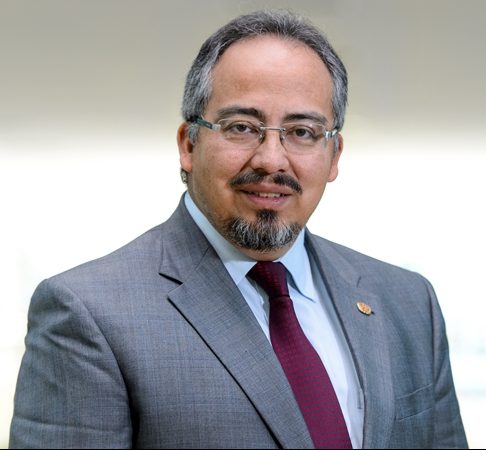
Statement by UNAIDS Latin America and Caribbean Regional Support Team Director, Dr César Núñez
This is our 30th commemoration of World AIDS Day. Over the last three decades the global response to HIV has evolved from a place of desperation to one of hope. Today we have a formidable toolkit to prevent HIV infections and deaths.
Babies of mothers living with HIV can be born HIV free. HIV positive people can be treated so that the level of virus in their blood is undetectable and they are no longer infectious. HIV negative people can take medicines to prevent contracting the virus. All this was unimaginable during the 1980s. In short, we now have the tools to end the AIDS epidemic. Yet the pace of progress is not matching global ambition.
This year’s World AIDS Day theme points to a simple action that ordinary people can take to bring us closer to that goal: know your status.
HIV testing is a critical strategy for both prevention and treatment. For people who test negative there is the occasion to assess their risks and devise a strategy to stay HIV free. For those who test positive there is an opportunity to start treatment, stay healthy and thrive.
An estimated 77% of people living with HIV in Latin America and 73% of people living with HIV in the Caribbean knew their status in 2017. This means that roughly one of every four HIV positive people in our region are not aware. Knowledge is power. Knowing your status means you can take steps to protect yourself and others. People’s ignorance of their HIV status undoubtedly contributed to the 100,000 new infections in Latin America and 15,000 new infections in the Caribbean last year.
In 2017 29% of newly diagnosed cases in Latin America and almost quarter of new diagnoses in the Caribbean were among people at an advanced stage of infection. This is a particular risk factor for men who are less likely to go to the clinic or visit a doctor unless they are gravely ill. It is in everybody’s interest to build a culture in which regular HIV testing is expected and supported. This makes early diagnosis, effective treatment and prevention possible.
Just as there have been innovations in treatment, there have also been innovations in testing. Throughout our region there is free access to rapid HIV testing. It takes just minutes to learn your status.
HIV self-tests are becoming more widely available. Brazil has led the way in terms of regulating this industry and ensuring that people have the information and resources they need to follow-up following a home test.
Community organizations are using peer outreach to test the most marginalized and vulnerable populations. We encourage governments to do more to support these organizations in reaching the people who find it difficult to access public healthcare services.
Service providers are increasingly using a method called index testing which involves offering tests to the sexual partners, children and other household members of people who have been diagnosed.
Governments, healthcare systems, civil society and development partners are all playing their parts. You can play your part by getting tested.
WHAT IS PANCAP?
PANCAP is a Caribbean regional partnership of governments, regional civil society organisations, regional institutions and organisations, bilateral and multilateral agencies and contributing donor partners established on 14 February 2001. PANCAP provides a structured and unified approach to the Caribbean’s response to the HIV epidemic, and coordinates the response through the Caribbean Regional Strategic Framework on HIV and AIDS to maximise efficient use of resources and increase impact, mobilise resources and build the capacity of partners.
What are the Global AIDS Strategy 2021–2026 targets and commitments?
If targets and commitments in the strategy are achieved:
- The number of people who newly acquire HIV will decrease from 1.7 million in 2019 to less than 370 000 by 2025
- The number of people dying from AIDS-related illnesses will decrease from 690 000 in 2019 to less than 250 000 in 2025.
- The goal of eliminating new HIV infections among children will see the number of new HIV infections drop from 150,000 in 2019 to less than 22,000 in 2025.
What are the 95-95-95 Targets for ending AIDS?
- 95% of People Living with HIV know their HIV status;
- 95% of people who know their status on treatment; and
- 95% of people on treatment with suppressed viral loads.
HELPFUL LINKS:
Global AIDS Strategy 2021–2026, End Inequalities, End AIDS
https://pancap.org/pancap-documents/global-aids-strategy-2021-2026-end-inequalities-end-aids/
Caribbean Regional Strategic Framework on HIV and AIDS (CRSF) 2019-2025
https://pancap.org/pancap-documents/caribbean-regional-strategic-framework-2019-2025/
